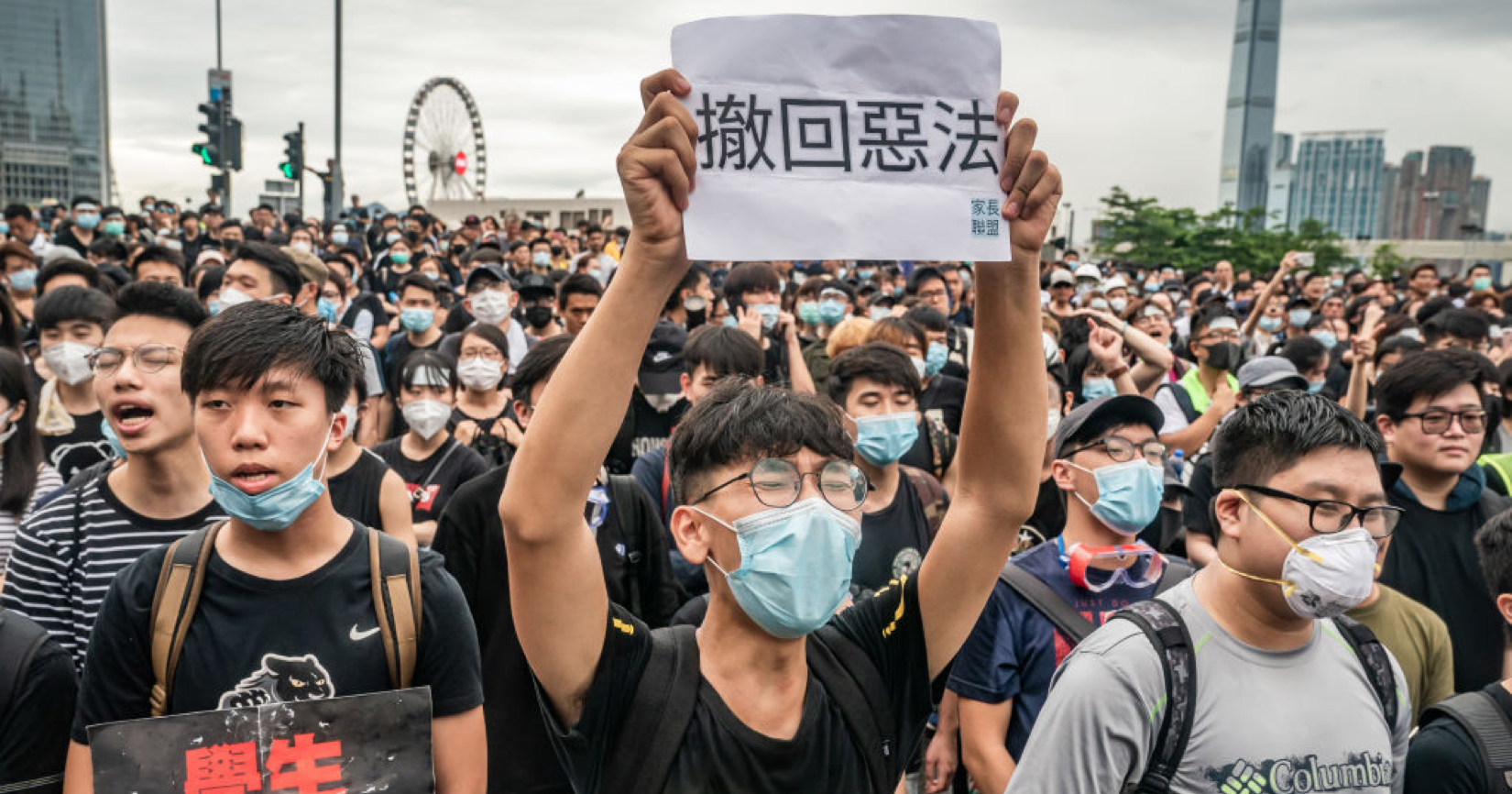By any reasonable metric, the Hong Kong protesters achieved their goals in 2019.
On June 15, Chief Executive Carrie Lam announced that the controversial extradition bill would be suspended.
Although there was no time frame given, Lam said the bill was not withdrawn entirely.
She also did not confirm if she would step down.
Two million black-clad protesters on Sunday, June 16, sent a message.
But numbers alone don't tell the whole story.
Hong Kong's financial importance to China
What made this particular protest succeed?
The answer: Hong Kong's primacy as a financial centre and a gateway to global finance markets.
According to a Bloomberg opinion piece on June 17, this makes Hong Kong valuable to Beijing despite China's strong economic growth.
Based on data compiled by Bloomberg, Chinese companies have raised US$156 billion from IPOs in Hong Kong since 2012, along with US$48 billion selling shares in the US.
This is still more than the US$143 billion worth of exchanges on the entire Chinese mainland.
Also, Chinese borrowers make use of the dollar bond markets through Hong Kong.
Hong Kong's role also grew in importance after US President Donald Trump's trade war with China, ratcheting up tariffs on Chinese goods and putting pressure on the economy.
Trust in Hong Kong is crucial
But Hong Kong's own importance as a financial centre only lasts as long as international bankers trust that they can do business in the city.
Currently, Hong Kong holds the following advantages:
- Independent legal system
- Free flow of information
- Relatively clean administration
- Civic freedoms
Much was made of the fact that the extradition bill could affect foreigners, and if passed, could threaten Hong Kong's credibility as a place for international financiers to set up shop.
Multinational companies such as HSBC and Standard Chartered, along with the "Big Four" accounting firms, allowed flexible working hours on June 12, the day of massive protests.
According to a Reuters report on June 13, some tycoons have begun moving their personal wealth offshore over concerns of facing politically-motivated trials in China, with Singapore a popular destination.
Beijing welcoming the status quo
Bloomberg noted that Beijing's response was instructive.
State news agency Xinhua quoted the authorities' support for Lam's decision on June 15:
"The Liaison Office of the Chinese Central People's Government in the Hong Kong Special Administrative Region (SAR) supports, understands and respects the decision made by Chief Executive Carrie Lam to suspend the exercise to amend the Fugitive Offenders Ordinance and the Mutual Legal Assistance in Criminal Matters Ordinance, an official in charge of the liaison office said here Saturday."
Lam's insistence that the extradition bill was not dictated by Beijing, but from her office, may have helped.
China may not wish disruption to the status quo, especially considering the turbulent situation in the Pacific at the moment.
Bloomberg drew a comparison between the recent protests and the 2014 Occupy Central protests, which opposed Beijing's formula for selecting Hong Kong's chief executive and called for direct democracy.
Despite occupying the business district for two months, the protesters failed then.
The protests in 2019 succeeded.
But in both 2014 and 2019, the end result was a return to the status quo.
This, opined the Bloomberg contributors, could be the most important reason for the situation on the ground.
Related stories:
Top image by Anthony Kwan via Getty Images.
If you like what you read, follow us on Facebook, Instagram, Twitter and Telegram to get the latest updates.
